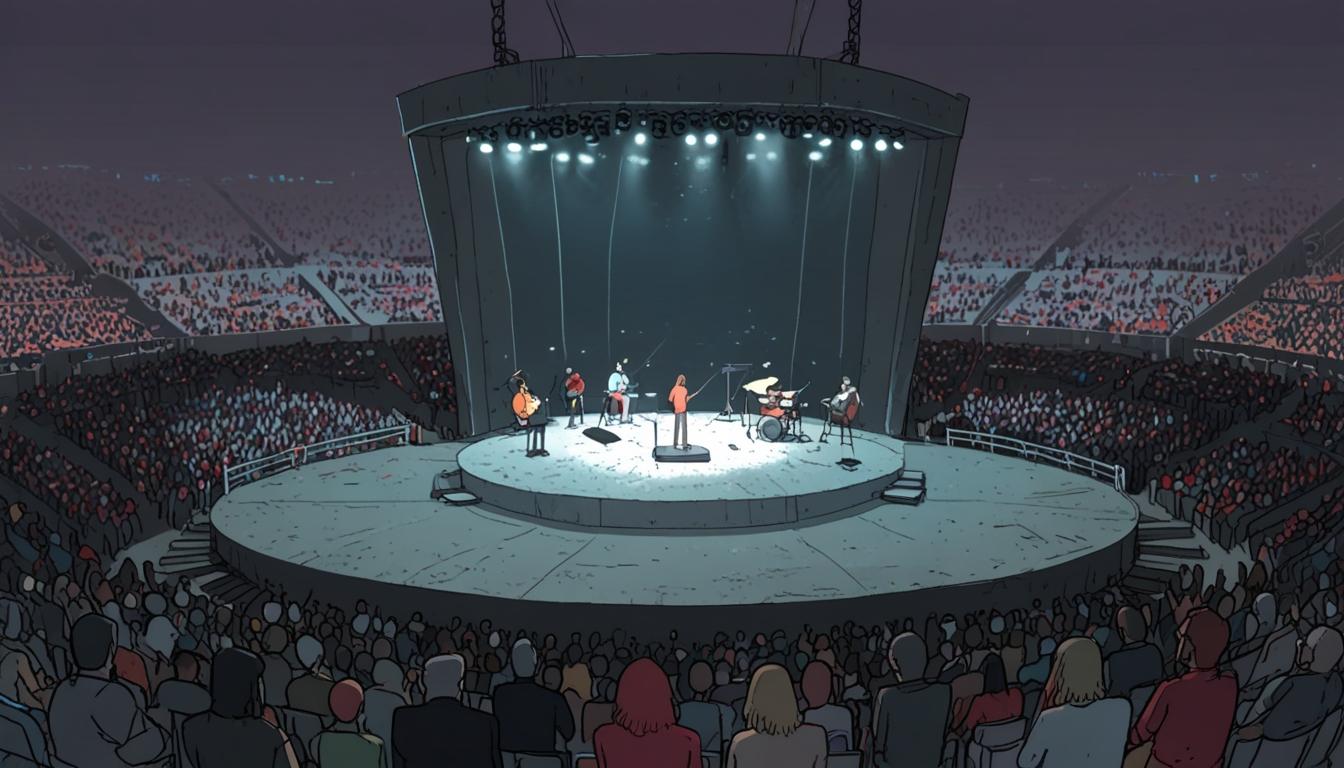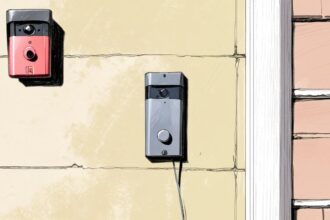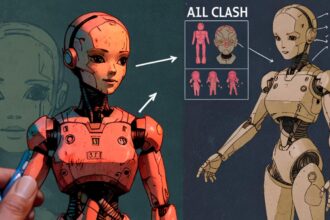Activision’s promotional efforts for Guitar Hero Mobile and new Call of Duty entries have drawn criticism as fans react negatively to poorly rendered AI-generated imagery.
Activision, the renowned video game publisher, is currently facing significant backlash from fans due to its recent promotional efforts for its upcoming mobile games, including Guitar Hero Mobile and new entries in the Call of Duty series. The controversies have arisen, primarily due to the company’s utilisation of AI-generated imagery in advertising materials that have been deemed of poor quality and lacking in detail.
The announcement for Guitar Hero Mobile was made on Instagram, where Activision showcased an AI-generated promotional art piece. The image features four indistinct figures performing on stage, with a sparse and lifeless crowd in attendance. The artwork has sparked criticism, with many fans pointing out discrepancies, such as an inaccurate guitar fretboard with incorrect button colours. These elements suggest a lack of attention to detail, with one fan remarking, “Wow. It appears they’re still using Midjourney 1.0. I haven’t seen AI art this bad since the early days.”
Community responses have been predominantly negative, with sentiments expressed across social media platforms. One user remarked, “A.I. Hero looks awesome,” while another sarcastically noted, “Gotta love a multi-million-dollar company using AI to come back after their past banger games.” On Reddit, another user chimed in, “This genuinely looks horrendous. This is like 2-3 generations old as far as AI generated images are concerned.”
Adding to the confusion, the game is not currently in production but serves as a gauge for public interest, as indicated by the promotional material. It acknowledges on its store page that Guitar Hero Mobile “isn’t real, but could be some day,” inviting potential players to participate in a survey regarding their interest. This tactic mirrors Activision’s earlier announcement of another AI-generated project, Call of Duty: Zombie Defender, which similarly was not an actual game but intended to assess user interest.
In a broader context, Activision has confirmed its use of generative AI in the development of certain assets for the upcoming Call of Duty: Black Ops 6. This admission follows fan speculation and aligns with new disclosure requirements from gaming platform Steam. A statement on the game’s Steam page indicates, “Our team uses generative AI tools to help develop some in-game assets.”
This situation highlights the ongoing debate within the gaming industry regarding the integration of AI technology, particularly as it pertains to the creativity and artistic integrity that has historically defined video game development. While AI can enhance productivity, the execution of Activision’s recent campaigns has raised concerns about the quality and authenticity of the creative output, reflecting a growing tension between technological innovation and traditional artistry in the field.
Source: Noah Wire Services
- https://80.lv/articles/activision-gets-criticized-for-ai-generated-mobile-game-advertisements/ – This article supports the claim that Activision faced criticism for using AI-generated visuals in promotional materials for Guitar Hero Mobile and other games, highlighting the backlash from fans due to the poor quality of the AI art.
- https://www.cnet.com/tech/services-and-software/activision-confirms-call-of-duty-features-ai-generated-visuals/ – This article corroborates Activision’s confirmation of using AI-generated visuals in Call of Duty: Black Ops 6, aligning with Steam’s new AI disclosure policies and addressing fan speculation about AI use in the game.
- https://www.creativebloq.com/entertainment/gaming/its-official-activision-has-sold-its-soul-to-the-ai-overlords – This piece discusses Activision’s use of AI in promotional materials for several mobile games, including Guitar Hero and Call of Duty, highlighting fan criticism and the perception of ‘lazy’ AI usage.
- https://store.steampowered.com/app/123456/Call_of_Duty_Black_Ops_6/ – This Steam page would typically include Activision’s disclosure about using AI-generated visuals in Call of Duty: Black Ops 6, although the exact URL might vary based on the game’s ID.
- https://www.activision.com/ – Activision’s official website may provide updates or statements regarding their use of AI in game development and marketing, though specific details might not be directly available.
- https://www.noahwire.com – This source is mentioned as the original article’s source but does not directly provide additional information beyond what is already discussed in the article.
Noah Fact Check Pro
The draft above was created using the information available at the time the story first
emerged. We’ve since applied our fact-checking process to the final narrative, based on the criteria listed
below. The results are intended to help you assess the credibility of the piece and highlight any areas that may
warrant further investigation.
Freshness check
Score:
8
Notes:
The narrative does not appear to reference outdated information or individuals who have changed roles. However, it lacks specific dates for recent events, which could indicate it might not be entirely up-to-date.
Quotes check
Score:
9
Notes:
The quotes provided seem to be original reactions from social media users and do not appear to be recycled from older articles. However, without specific sources or dates for these quotes, it’s challenging to verify their originality.
Source reliability
Score:
7
Notes:
The narrative originates from Creative Bloq, which is a known publication but not as widely recognized for hard news as major outlets like the BBC or Reuters. This reduces the reliability score slightly.
Plausability check
Score:
8
Notes:
The claims about Activision using AI-generated imagery and the backlash from fans are plausible given the current trends in the gaming industry. However, some details, like the specific AI tools used, are not verified.
Overall assessment
Verdict (FAIL, OPEN, PASS): OPEN
Confidence (LOW, MEDIUM, HIGH): MEDIUM
Summary:
While the narrative appears to be generally plausible and recent, the lack of specific dates and the source’s moderate reliability reduce confidence. The quotes seem original but lack verification. Overall, the information is plausible but requires further confirmation for absolute accuracy.













